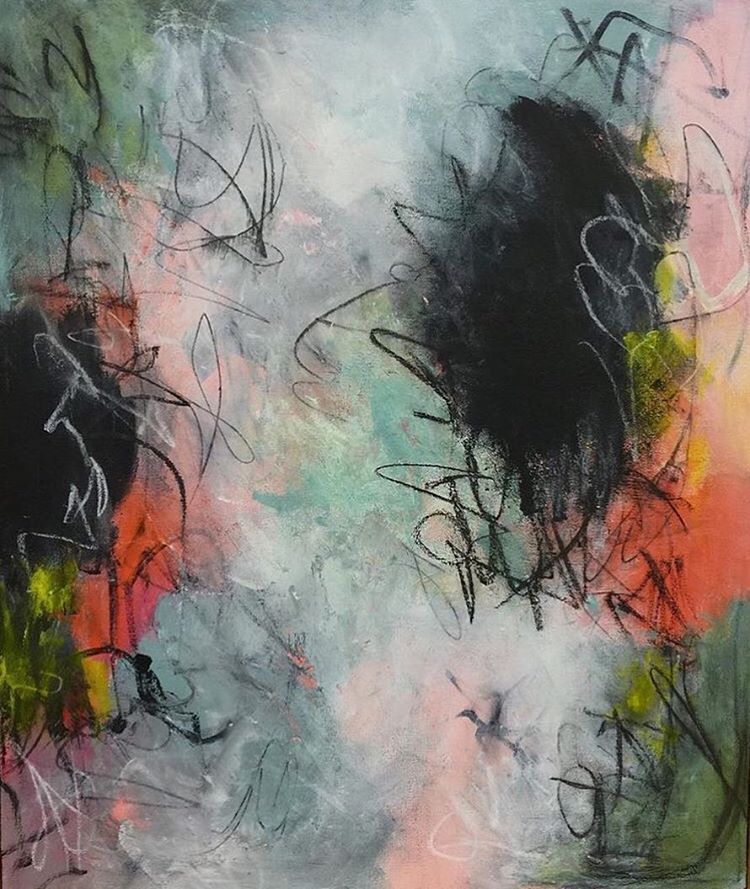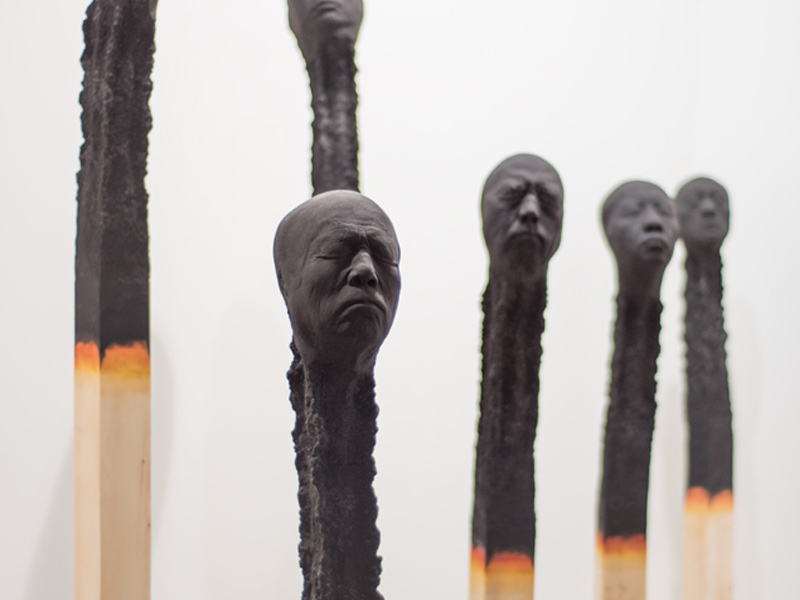The absurdist, nonsensical, yet vivid and sensual work of Murayama Kaita, unearthed, translated from Japanese, and presented in all its idiosyncratic glory…

by: Murayama Kaita (Translated by: Marissa Skeels)
Kyoto-born writer and painter Murayama Kaita (1896-1919) was a major pioneer of gay literature in Japan, despite having died at 22. Although adolescent same-sex relationships abounded in Japanese pop culture in the 1910s, few writers — Murayama included — identified as gay and resisted the doctrine that homosexuality was a developmental phase. Unlike his posthumously-published writing, Murayama’s painting ability and oratory skill was lauded during his lifetime. He was inducted into Japan’s Art Institute aged 14, winning awards and holding exhibitions, and his painting Lake and Woman is referred to as Japan’s Mona Lisa.
“Fairytales: Five Dreams” is a single work consisting of five pieces of flash fiction which capture the essence of the 1920’s Japanese ero, guro, nansensu (erotic, grotesque, nonsense) absurdist literature movement.
Heaven’s Urine
I strolled beneath a beautiful, bright blue sky, once. Looking straight up, it looked odd somehow. Usually, I walk through fields, but this was the bottom of a valley. A well jutted before me.
I was struck with the urge to piss and wandered to and fro, wary of being seen. My bladder swelled up like a bouncy ball, light and taut. My stomach followed.
“Oh, come on, I need to go!” I cried, leaping five thousand feet into the air, high in the sky. My bladder released at once, as did tears of joy at the sight of urine streaming from between my thighs while I soared. The stream trickled in a twinkling jet, falling to Earth as a long, straight, golden staff which turned blood-red.
About five thousand people stood beneath me, looking up, all laughing at what they saw. I covered my face, and fell asleep. I might have dropped then, or risen higher still — I can’t remember.
A Woman’s Eyes
I was out walking, once again. A stunning woman strode towards me, in her own world. When we were side by side she stopped and stared at me.
I stopped too, taking in her rosy complexion. Beautiful, I thought. My reverie ended when she closed both eyes. The sky darkened into a clear, moonlit night. Soon, her left eye cracked open. A single goldfish swam across it. A second, then a third followed, until five fish swam in a ribbon of teal in her eye.
Her left eye cracked open, and infinite exquisite diamonds tumbled out and flew upward, northwards, shrouding the moon in darkness. I lost sight of her face. She might have bid me farewell then, or we might have said goodbye to each other — I can’t remember.
The Handstand Dance
A devastating war raged around us. While I moved — by jumping, always jumping — freshly severed soldiers’ heads wearing red caps flew over my own. Everyone else there was crying, but I was calm. I saw each and every single neck clearly. My face was painted in blood.
Someone bellowed, “Run, run!,” so I did. Over my shoulder I saw German soldiers in pursuit, in clattering iron machines. Only a thousand of us made it to an opulent estate, and stampeded through a gate that then slammed shut.
“Well, we’re safe now!” we said, making for the mansion’s inner rooms. An aristocrat, renowned for their dancing, owned this place and others.
An extravagant feast was brought to us in the reception room, where a golden dancefloor was set. The beautiful lady of the house entered, naked, and said, “I shall show you all a dance.”
Eleven of her disciples came out, each one nude. Music rang out. The dance began.
It was a strange one. Everyone balanced on their hands and spun around, legs in the air, flapping their feet. They all wore shoes made of gleaming jewels and glass, so twenty-two sparkling feet seemed afire with motion — It was enthralling.
While I gazed, spellbound, someone behind me yelled, “Hey, are they headless?” On closer look, yes, the dancer’s heads had clearly flown off somewhere. They were spirits made of legs. Dancing fledglings.
“That’s horrific!” we cried, rushing outside, where the bloody battle continued just as we’d left it.
A Woman’s Cheeks
Adorable, sensible K is a friend of mine. Her cheeks are unlike anyone else’s. I sat with her, once, holding her hand.
“Why are her cheeks so fine?” I wondered, gaze locked on them. Peering hard, I saw an elaborate painting of a glorious, broad field of scarlet roses in full bloom. When the sun flared, every one of the thousands of illuminated roses were dappled with peacock-colored shadows.
A painted monkey sat in the shade of the one tree in the middle of the field, weeping. I wondered why it cried, but there was no point asking a painting. I pulled out a magnifying glass. It cried because the monkey had a tiny rose thorn stuck in its palm.
“Wah, wah, wah,” it sobbed.
Just then, K stood up, and I lost sight of it.
The Diamond Louse
I was working as a barber, once. A gentleman dressed in golden clothes came in and said, “Hello, barber. I am an envoy of the king, and am here because he needs a trim. Please collect your scissors and razors and come with me.”
I equipped myself with my cherished scissors, razor, and high-quality soap as asked and we set off. The handsome young king was in his palace’s garden — King of where? Spain, I believed. I greeted him, then set to work. His hair was truly lustrous and lovely.
Something shiny was among the bristles on his neck, stuck to his skin. Like a diamond. I plucked it off. “Your majesty, your majesty, what’s this?”
The king blushed. “What? It’s a louse, isn’t it?”
It resisted my crushing so I pocketed it, convinced it was a diamond. I finished up and returned to my store, where the manager of a jewel store in Ginza was waiting for a haircut.
“Guess what? This louse was on the king.” I took out the shiny object from my pocket to show him. He drew back sharply.
“Sell it to me! Please, I’ll give you twenty thousand yen for it!” He scrambled for his checkbook, and a few pen strokes later, he flew off with it in hand. And that is why I no longer have that louse.
Marissa Skeels is a Melbourne-based editor and translator who has lived in Fukushima, Kyoto, and Tokyo for several years. Her translations have appear in Overland, Inkwell, Hunger Mountain, and elsewhere.






There’s a lush weirdness to these tales. At the time Japan was cracking open to Western influences, enough to defeat the Russian navy in 1905 and be taken seriously by the international community. I don’t see the “Japanese” in these pieces. I see surrealism and, perhaps, incipient psychosis. They’re beautiful, joyous. What a coup, to find this writer and give us this amazing literature.
Am I the only person to comment on these amazing vignettes? I’ve read them again, with more pleasure. The stories are joyful, exuberant, blessedly nuts. I hope I can find some of Kaita’s paintings online. Today, I am reminded of Kurosawa’s “Dreams”, a film divided into several stories that are strange and surreal. Maybe…K’s last film?
I have no desire to trash some enjoyable translations, but in this paragraph…
“Well, we’re safe now!” we said, making for the mansion’s inner rooms. An aristocrat, renowned for their dancing, owned this place and others.
…the anachronistic “their” is very jarring. Yes, I know, grammar, like vocabulary, changes with society, but there is no reason to to try to make a unique artist, dead these one hundred years (and Japanese, to boot), seem like one of us.